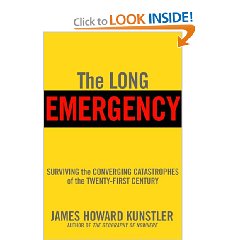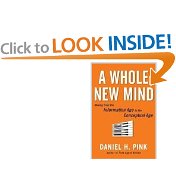Having said that, I consider the book itself, despite its run-on Op-Ed character, to be a tour de force that is very logically put forward. Indeed, although I have seen allusions elsewhere, this is the first place that I have seen such a thorough denunciation of how cheap oil underlies everything else including suburbia and Wal-Mart cf. Wal-Mart: The High Cost of Low Price. I am also quite impressed by the author's logical discourse on how communities have sacrificed their future coherence and sustainability for the sake of a few dollars savings on Wal-Mart products.
There is a great deal in the book that is covered more ably and in more detail by the other 600+ books I have reviewed at Amazon, and indeed, replicates much of what I write about in The New Craft of Intelligence: Personal, Public, & Political–Citizen's Action Handbook for Fighting Terrorism, Genocide, Disease, Toxic Bombs, & Corruption but, I have to say, with a different twist that I admire very much.
I find the author's exploration of how cheap fuel led to wasted water, helping create cities and mega-agricultural endeavors that reduced our water at the same time that we consumed centuries worth of unrenewable fossil fuel, quite alarming.
I sum the book up on page 180 by writing in the bottom margin: “Fuel Drop + Climate Change + Disease + Water Drop = Great Depression.”
I disagree with those that consider the book excessively alarmist, and agree with those that find fault with the author's documentation. An index and an annotated bibliography would have doubled the value of this book. The author is clearly well read, logical, and articulate–an unkind person would say that he has also been lazy in not substantiating his arguments with what intelligence readers value most: an index and a good bibliography that respects the contributions of others to the argument.
The author in passing makes a good argument against our current educational system, and I for one believe that we need to get back to a system of life-long education accompanied by early apprenticeship and real-world employment and grounding for our young people. What passes for education today is actually child care, and the smartest young people, like my teen-ager, consider it to be nothing more than a prison.
On balance, a solid 4, a solid buy, and worth its weight in gold if you act on his advice and begin planning an exit strategy from those places likely to run out of water, fuel, and transport options in the next 20 years.









